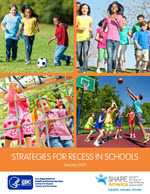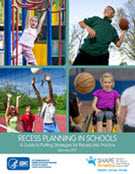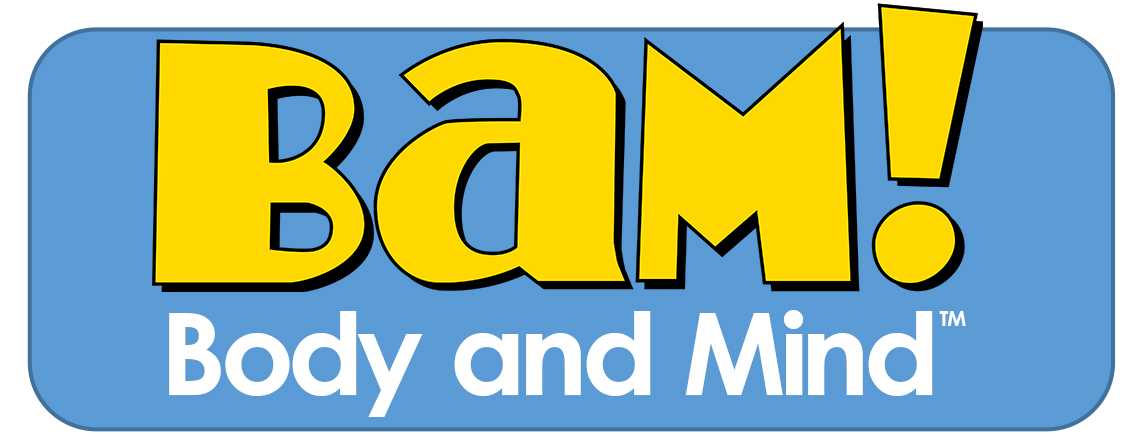Recess

Recess Defined
Recess is a regularly scheduled period in the school day for physical activity and play that is monitored by trained staff or volunteers.1,2 During recess, students are encouraged to be physically active and engaged with their peers in activities of their choice, at all grade levels, kindergarten through 12th grade.1,3
Recess benefits students by1,4-7
- Increasing their level of physical activity.
- Improving their memory, attention, and concentration.
- Helping them stay on-task in the classroom.
- Reducing disruptive behavior in the classroom.
- Improving their social and emotional development (e.g., learning how to share and negotiate).
Recess Strategies
CDC and SHAPE America developed the following documents:

Strategies for Recess in Schools [PDF – 2.69 MB]—Evidence-based strategies for planning and providing recess in schools to increase physical activity participation and improve academic achievement (e.g., performance, behavior, attention).

Recess Planning in Schools [PDF – 2.13 MB]—Helps schools put the Strategies for Recess in Schools into practice when developing a written school recess plan.
- Recess Planning Template [DOCX -97KB]—Provides a customizable template for schools to use when developing their school recess plan.
- Physical Activity During School: Providing Recess to All Students [PPT – 6 MB] [PDF – 3.4 MB]—explains the benefit and importance of recess and CDC and SHAPE America’s new resources for recess.
- Resources for Recess in Schools Promotion Kit [PDF – 675KB]—Promote the resources for recess to your partners and constituents.
Resources
- CDC School Health Guidelines to Promote Healthy Eating and Physical Activity [PDF – 973 KB]
- CDC Comprehensive School Physical Activity Program: A Guide for Schools [PDF – 6.44 MB]
- CDC Ideas for Parents: Recess [PDF – 2.11 MB]
- SHAPE America Guide for Recess Policy [PDF – 2.19 MB]
- Playworks Game Guide
- Playworks Playbook
- Playworks Guide for Inclement Weather
- Recess Before Lunch: A Guide for Success [PDF – 2.36 MB]
- Recess Moves: A Toolkit for Quality Recess [PDF – 2.2 MB]
- Time to Play: A Mandatory Daily Active Recess Policy Implementation Guide [PDF – 1.54 MB]
- Peaceful Playgrounds 60 Alternatives to Withholding Recess
References (expand to view)
- Institute of Medicine. Educating the Student Body: Taking Physical Activity and Physical Education to School. Washington, DC: The National Academies Press; 2013. Available at: http://books.nap.edu/openbook.php?record_id=18314&page=R1.
- Centers for Disease Control and Prevention. A Guide for Developing Comprehensive School Physical Activity Programs. Atlanta, GA: Centers for Disease Control and Prevention, US Dept of Health and Human Services; 2013.
- SHAPE America. Guide for Recess Policy. Reston, VA: SHAPE America; 2016.
- Centers for Disease Control and Prevention. The Association Between School-Based Physical Activity, Including Physical Education, and Academic Performance. Atlanta, GA; Centers for Disease Control and Prevention, US Dept of Health and Human Services; 2010.
- Michael SL, Merlo C, Basch C, Wentzel K, Wechsler H. Critical connections: health and academics. J School Health. 2015;85(11):740-758.
- Fortson J, James-Burdumy S, Bleeker M, et al. Impact and Implementation Findings from an Experimental Evaluation of Playworks: Effects on School Climate, Academic Learning, Student Social Skills and Behavior. Princeton, NJ: Robert Wood Johnson Foundation; 2013.
- Barros RM, Silver EJ, Stein REK. School recess and group classroom behavior. Pediatrics. 2009;123(2):431-436.
- Page last reviewed: June 28, 2017
- Page last updated: June 28, 2017
- Content source:



 ShareCompartir
ShareCompartir